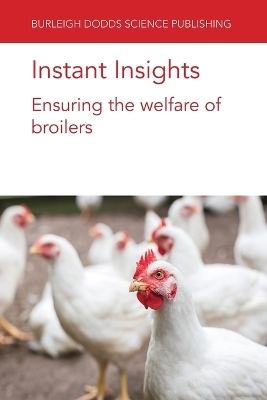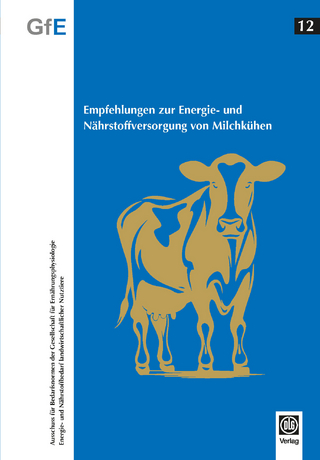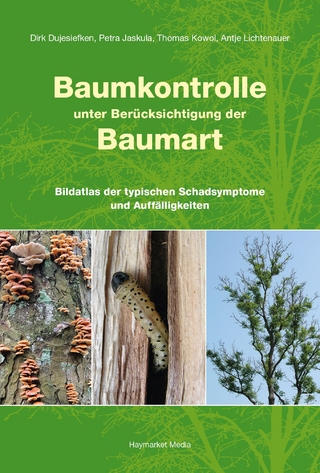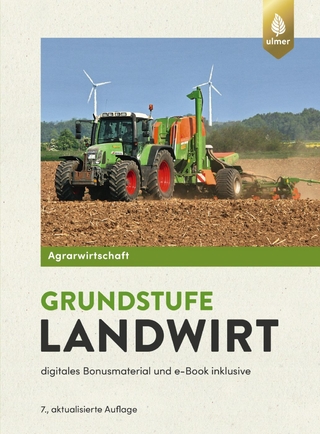
Instant Insights: Ensuring the Welfare of Broilers
Burleigh Dodds Science Publishing Limited (Verlag)
978-1-80146-673-8 (ISBN)
This book features five peer-reviewed reviews on ensuring the welfare of broilers.
The first chapter considers the range of factors that pose a significant threat to broiler welfare, focussing on the impact of fast-growing broilers and high stocking densities. The chapter reviews how these factors have been addressed within the European Union through the inclusion of two case studies. The second chapter builds on research covered in the first chapter and details the welfare issues that can arise as a result of intensively reared broiler flocks. The chapter discusses the development of leg disorders and lameness, as well as contact dermatitis.
The third chapter reviews the major welfare issues related to the management of broiler breeders, including feed and water restriction, excisions and the potential for management strategies to have transgenerational effects.
The fourth chapter similarly addresses the welfare issues that can arise in the housing of broiler breeders, but instead focusses on the impact of these factors on increased levels of aggression and consequent aggressive behaviour, such as feather-pecking.
The final chapter explores the use of group-level technologies to monitor and automate poultry welfare assessments of broilers, focussing on the use of visual images retained from CCTV and video, as well as sound and temperature sensing.
Bas Rodenburg studied biology at Wageningen University and graduated in 1998. In 2003, he received his PhD from that same university, focusing his research on feather pecking behaviour in laying hens and how that is related with other behavioural characteristics, such as the ability to cope with fear and stress. After obtaining his PhD, he worked at Livestock Research in Lelystad and at the ILVO in Ghent, Belgium, focusing on research in the area of poultry behaviour and welfare. In 2006, he returned to Wageningen on a personal VENI-grant to investigate the effects of genetic selection and of early-life environment on behaviour of group-housed laying hens. He was recently project leader of a research program aiming to translate scientific knowledge on feather pecking to commercial practice.
Chapter 1 - Ensuring the welfare of broilers: an overview: T. B. Rodenburg, Wageningen University, The Netherlands;
1 Introduction
2 Genetic selection
3 Stocking density
4 Case study: hatching environment and early feeding
5 Case study: alternative and free range systems
6 Summary: how research can contribute to enhanced and sustainable broiler production
7 Future trends in research
8 Where to look for further information
9 References
Chapter 2 - Poultry health monitoring and management: bone and skin health in broilers: Gina Caplen, University of Bristol, UK;
1 Introduction
2 Leg disorders and lameness
3 Contact dermatitis
4 Conclusion and future trends
5 Where to look for further information
6 References
Chapter 3 - Welfare issues affecting broiler breeders: Anja Brinch Riber, Aarhus University, Denmark;
1 Introduction
2 Welfare issues in broiler breeders
3 Conclusion and future trends
4 Acknowledgements
5 Where to look for further information
6 References
Chapter 4 - Broiler breeding flocks: management and animal welfare: Ingrid C. de Jong and Rick A. van Emous, Wageningen Livestock Research, The Netherlands;
1 Introduction
2 Housing conditions and management in the rearing period
3 Housing conditions and management in the production period
4 Welfare issues: restricted feeding and water restriction
5 Welfare issues: excisions, mating behaviour and quality of feather cover
6 Environmental enrichment
7 Vaccinations
8 Transgenerational effects
9 Concluding remarks
10 Where to look for further information
11 References
Chapter 5 - Poultry welfare monitoring: group-level technologies: Marian Stamp Dawkins and Elizabeth Rowe, University of Oxford, UK;
1 Introduction
2 Types of automated assessment
3 Automated measures of welfare as part of precision farming
4 Why isnt automated welfare assessment more widely used?
5 Conclusions
6 Future trends
7 References
| Erscheinungsdatum | 16.02.2024 |
|---|---|
| Reihe/Serie | Burleigh Dodds Science: Instant Insights ; 100 |
| Zusatzinfo | Illustrations |
| Verlagsort | Cambridge |
| Sprache | englisch |
| Themenwelt | Weitere Fachgebiete ► Land- / Forstwirtschaft / Fischerei |
| ISBN-10 | 1-80146-673-4 / 1801466734 |
| ISBN-13 | 978-1-80146-673-8 / 9781801466738 |
| Zustand | Neuware |
| Informationen gemäß Produktsicherheitsverordnung (GPSR) | |
| Haben Sie eine Frage zum Produkt? |
aus dem Bereich


